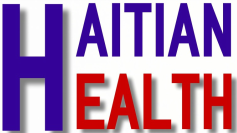|
In a recent study, members of the Haitian community living in the U.S. expressed the needs for improved access to care for their psychological and physical concerns, low-income housing, work opportunities; and regulation of the immigration status of the undocumented Haitians [1]. Although strong social support exists among the Haitians, which has been playing a great role in their capacity to cope with these stressors, no assessment tool could reliably and validly capture their mental well-being in their own language. Recently, a culturally appropriate scale to screen for depression was developed. Initially, a literature review was performed to identify the terms used in Creole that could have been used to describe the symptoms of depression. In total, the authors found 91 terms.
Following this literature search, they purposively sampled (selected) study participants based on population characteristics and the objectives of the study. During the process, they made choice of 13 authority figures from the Central Plateau and Lower Artibonite, whom community members called upon for mental health concerns. These authority figures included “six Voodoo priests/priestesses (five men, or houngan, one woman, or manbo), one herbalist (doktè fey, a man), one sacristan (a man), one primary care doctor (a man), two teachers (both men), and two respected community members (both women)” [2]. Their task was to categorize the 91 Creole terms that might define depression and provide a description of each category that they created. Each participant created their categories using their own labels. The most common three categories were about “fear and cognitive problems”, “anxiety”, and “sadness, psychomotor retardation, and loss of interest in daily activities” [2]. The third category included terms that best represented the symptoms of depression. Out of the total 91 terms found in the literature, 26 terms were selected. These 26 terms were used to formulate the questions that made up the resulting screening tool. The screening tool was then administered to 105 community members (75 female and 25 male), aged 14-75, who were selected by convenience. Based on the DSM-IV-TR and considering the socio-cultural context of some Haitians, the site coordinators conveniently chose within each of the seven designated health clinics “8-10 depressed and 8-10 not depressed individuals” [2]. Exemplifying the importance of determining socio-ecologically the symptoms of depression, “attention was paid to questions of anhedonia, where engagement in pleasurable activities might be influenced by economic means” [2]. Upon completion of the screening tools, the authors entered the data using a software, SPSS, to evaluate the reliability of the questionnaire or its capacity to be useful for screening depression in Haitians living in other cities. Using this same software and a different measurement method (cronbach’s alpha test), they also determined if the questions were valid to detect the symptoms of depressions in individuals with varying levels of depression. During their analysis, they discovered that the participants who were screened as depressed were more likely to have documented “functional impairment (WHODAS-II scores), r = .71 (p < .001)” [2]. As a result, some questions using terms that were confusing or ambiguous, and did not respond to the criteria mentioned above were eliminated. The resulting “13-item screening measure in Haitian Creole of depressed mood and vegetative symptoms” [2] is called the Zanmi Lasante Depression Symptom Inventory (ZLDSI). In spite of the limitations, such as the exclusion of the literature review not pertaining to the people living in the Central Plateau, the area where the study was conducted, and the non-random selection of community members for testing the screening tool, this study reveals the existence of the first reliable and valid instrument to screen for depression the Haitians in Haiti and potentially with or without adaptations those living in the U.S. References 1. Allen, J. D., Leyva, B., Hilaire, D. M., Reich, A. J., & Martinez, L. S. (2015). “Priorities, concerns and unmet needs among Haitians in Boston after the 2010 earthquake.” Health & Social Care in the Community 1-12. doi: 10.1111/hsc.12217 2. Rasmussen, A., Eustache, E., Raviola, G., Kaiser, B., Grelotti, D. J., & Belkin, G. S. (2015). Development and validation of a Haitian Creole screening instrument for depression. Transcultural psychiatry, 52(1), 33-57. doi:10.1177/1363461514543546
0 Comments
Leave a Reply. |
Mickelder Kercy, M.D. M.S.I learned about the art and science of medicine and was introduced to the community and population-based aspects of public health at the Université Notre Dame d'Haiti. My early practical interventions in the field of public health during medical residency in Haiti fostered my interest in pursuing additional academic training in public health. At Columbia University in the City of New York, I specialized in Public Health with a minor focus on Community Health Education. My special interest is in non-communicable chronic diseases, and the social-ecological approach to health education and promotion in secular and faith-based communities. Archives
October 2017
Categories
All
To subscribe to our blog and receive notifications of new posts by email
|


 RSS Feed
RSS Feed
